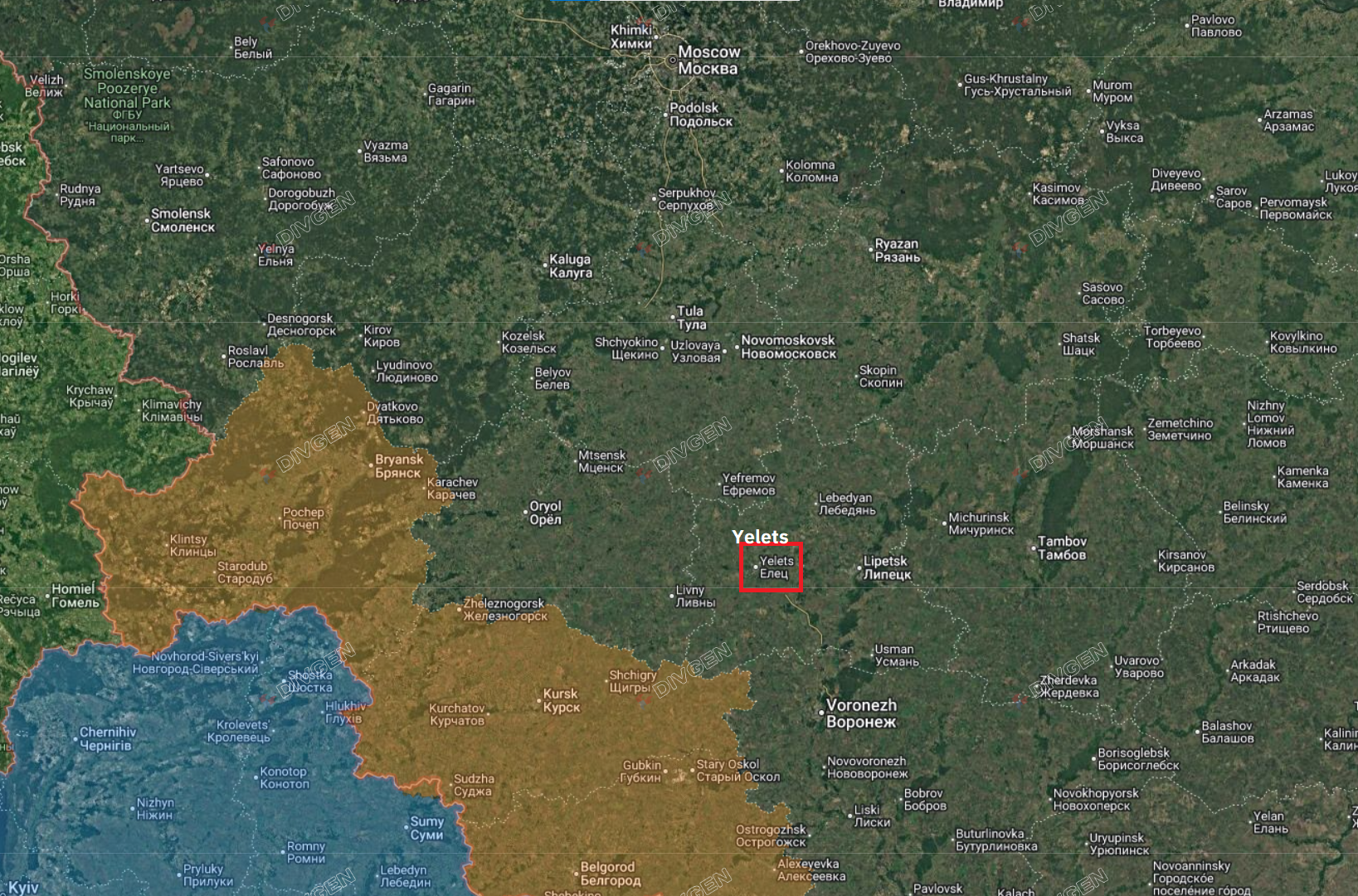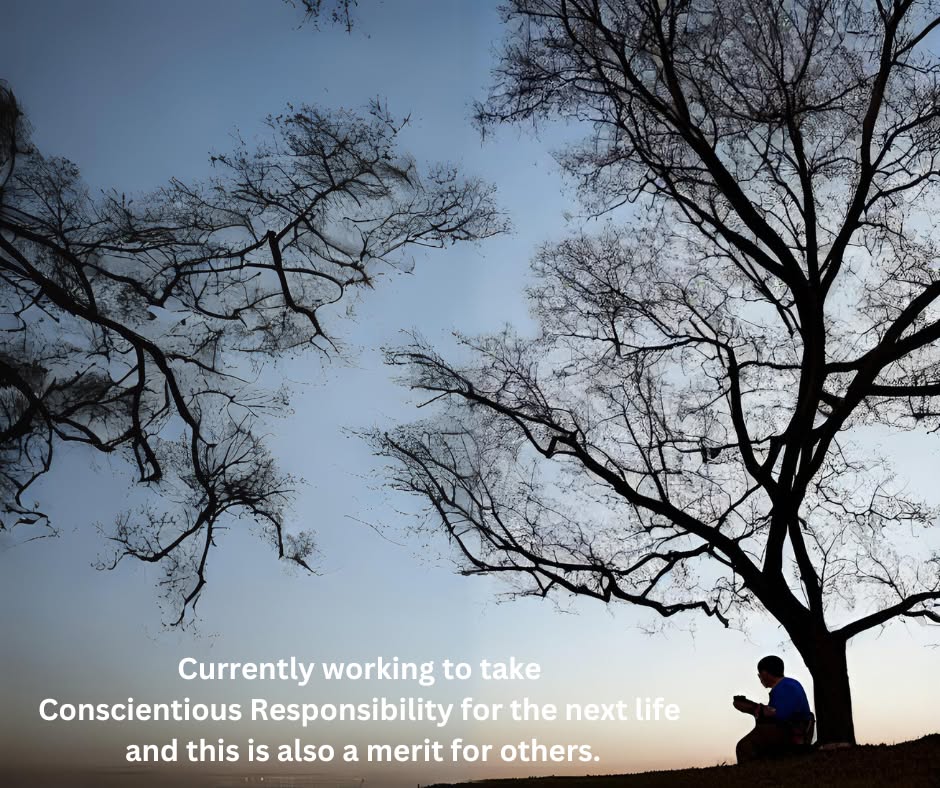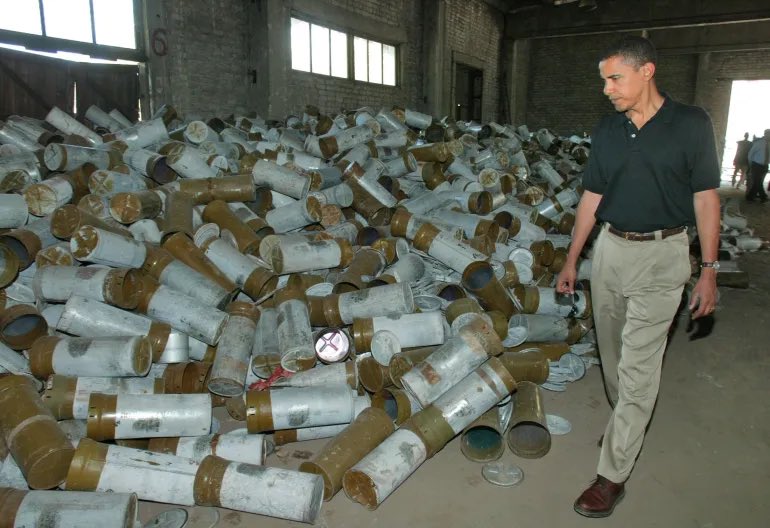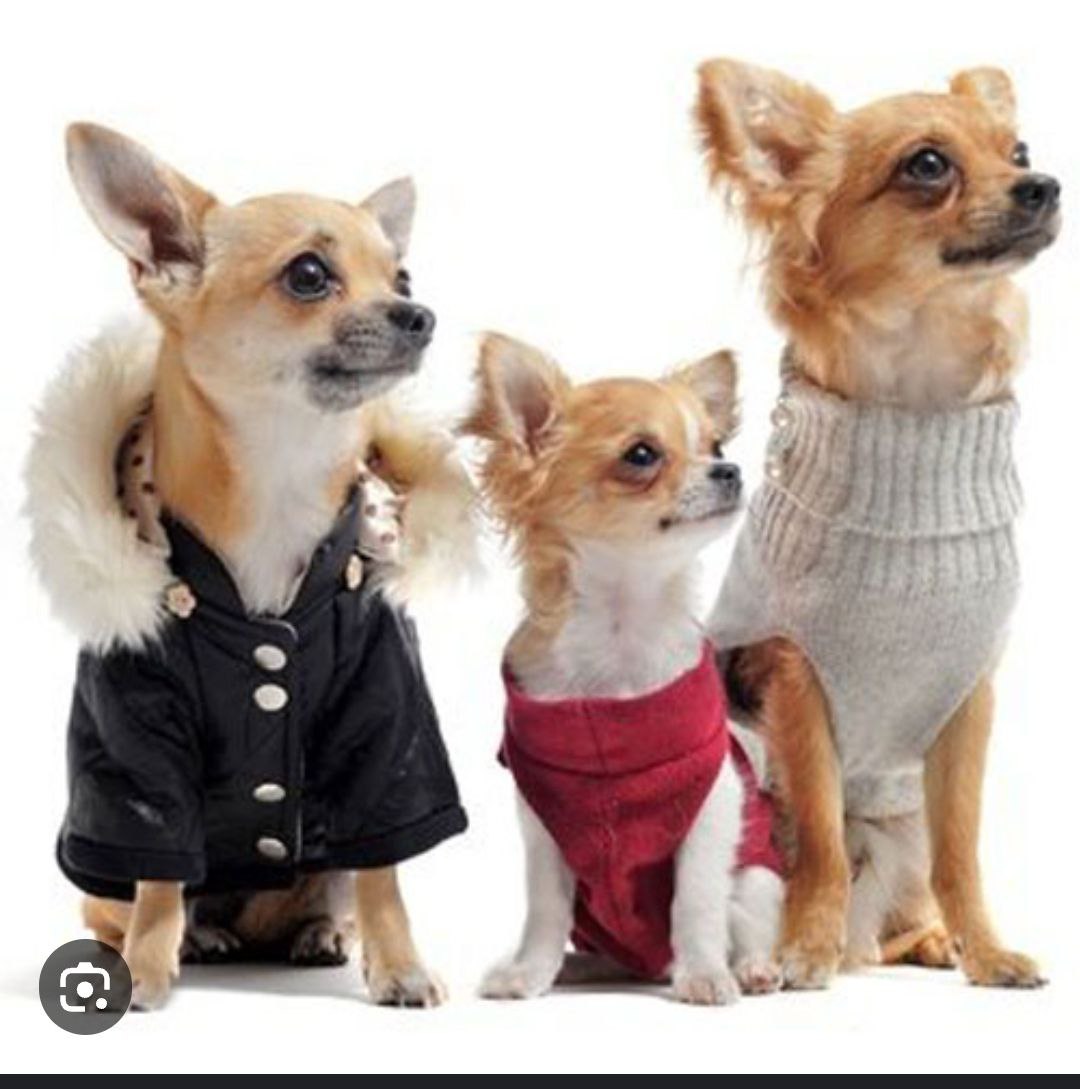New Words We Created Because Of Coronavirus
We’re rounding out 2020, and the coronavirus continues to shape our lives and language. While we once hoped we could toss the year’s coronacoinages out the door, that’s clearly not going to be the case right now: the coronavirus continues to surge to new levels.
It seems like years (not months) ago that we learned our first COVID-19 terms, like social distancing and flatten the curve. We had to process so much, in so little time; we had to become experts about important differences: epidemic vs. pandemic, quarantine vs. isolation, and respirator vs. ventilators. The conversation continued with contagious vs. infectious and what antibodies do.
Many of the words we’ve continued to add to our vocabularies address the ongoing nature of our situation. Maybe we long for the Before Times or have embraced cluttercore as we cope. The ups and downs of this life haven’t been easy (it’s a coronacoaster, to be honest), but the new vocabulary has helped us stay safe and informed during these scary times. And what better way to bring some welcome humor and humility to our lives in the bunker than some wordplay?
Here’s our ongoing roundup of some of the new slang terms born of this unique, unprecedented time in modern life—a time of upheaval that some more jokingly call the coronapocalypse (corona apocalypse) or coronageddon (corona armageddon).
the Before Times
Are you walking around in a constant state of nostalgia? Then the term Before Times is for you. This humorous (and yes, dark) take on life pre-pandemic makes it clear that we’ve lived through an apocalyptic rupture point that separates old and new.
The Before Times has long been a trope in science fiction, and linguist Ben Zimmer traces this specific phrase back to 1960s Star Trek, though some variations (beforetime) appear in early texts like the Bible.
Example: Remember in the Before Times, when we packed together in movie theaters for a fun time? Seems like a different world now!
rona
Rona—often in the phrase the rona—is an informal shortening of coronavirus. Coronavirus is popularly shortened to corona, which was apparently further clipped to rona.
Rona is often used as a playful or ironic way to refer to COVID-19, especially when commenting on more relatable, humorous challenges of social distancing during the pandemic.
It is generally not meant, however, to be flippant about the very serious loss and disruption COVID-19 has wreaked—nor diminish the life-saving service of so many essential workers, from grocery clerks to nurses. It’s a bit of gallows humor.
Some people have personified the virus as Miss Rona or Aunt Rona. And la rona (meant as “the rona”) has emerged in some Spanish-language contexts.
Other informal shortenings? Just as coronavirus has been shortened to corona and rona, so quarantine has been shortened to quar—and even pandemic to panny.
Example: Yeah, I don’t know about you, but homeschooling my kids during the rona ends up in a lot of Frozen 2.
cornteen
Cornteen is an intentional misspelling of quarantine, often used in ironic commentary on what it’s like to be at home during the coronavirus pandemic. It may have originated as an actual misspelling of quarantine. (Hey, quarantine wasn’t exactly a word most of us used every day until COVID-19.)
Cornteen is occasionally used to joke about how quarantine is pronounced in various regional accents. Some people visually pun on cornteen by substituting the corn emoji,
, for the corn- part of the word; others pun on the -teen to mean “teenager.”
doomscrolling
Life under the rona has meant that it’s even harder to peel our eyes away from our phones and computers, constantly refreshing our feeds for the latest news about the pandemic.
At least there’s a word for that: doomscrolling, also doomscrolling. The term has been notably used—and popularized in part by her exhortations to a take a break from doing it—by Quartz reporter Karen K. Ho.
Scrolling refers to scrolling down on our smartphones for the latest posts on social media. And doom … well, a lot of the news we’re seeing online feels full of gloom and doom.
Example: I was up to 2 a.m. last night doomscrolling about coronavirus news in my state.
A related slang term is doomsurfing, or compulsively surfing the internet for upsetting news.
coronasomnia
Staying up late, again? Waking up at 4am to doomscroll? Can’t remember your last good night of sleep? You’re not the only one. The term coronasomnia refers to—what else?—the insomnia that’s afflicting so many of us during the pandemic.
Doctors and pharmacists have seen a measurable increase in the number of people suffering symptoms of insomnia or whose symptoms have worsened since the quarantine began. Some estimates suggest some 20 to 30 percent of the population—including children—may be impacted.
One doctor coined the term “FED UP” to describe the worries of this stressful time. It stands for “financial stress, emotional stress, distance from others, unpredictability, and personal and professional concerns.” Yikes. Sounds like that’s another term for the dictionary.
coronacoaster
If you’re suffering from coronasomnia, you’ll likely understand this next word without much of an explanation.
Coronacoaster is one of the many new COVID-inspired coinages that use corona (short for coronavirus) as a kind of combining form. It blends corona and rollercoaster to describe the emotional experience of life during the pandemic. Did you bake cookies and then sob like a baby while masking up for the 10,000th time? You’re on the coaster!
Example: The coronacoaster has been exhausting this week. I started crying during my weekly family Zoom and couldn’t stop.
coronacut
The hilariously bad haircut we give ourselves under lockdown.
This was one of the first coronacoinages out there—proving that sometimes we worry most about the little things … or that we’re all pretty vain.
It feels like so long ago since we first heard this term, which only goes to show how slang changes as our experience of the pandemic changes.
cluttercore
A “messy aesthetic,” especially in terms of embracing one’s books, knickknacks, and other stuff at home and sharing it on social media.
While coronacut reminds us of our struggles during the earliest days of the pandemic, this term reflects the ongoing evolution of quarantine life.
Cluttercore emerged as a maximalist, anti-Kondo approach in early 2020 before any lockdowns, but the pandemic really helped popularize the term. (As of October, videos with the hashtag
#cluttercore had more than two million views.) This combining form blends clutter (“a disorderly heap or assemblage”) with -core, which names a kind of aesthetic, social movement, or lifestyle. Cluttercore is similar to terms like cottagecore, normcore, and gorpcore.
“The pandemic has forced us to reevaluate what we have, make better use of objects and space … and also see their value, often for the first time,” says Jennifer Howard, author of Clutter: An Untidy History.
covidiot
A blend of COVID-19 and idiot, covidiot is a slang insult for someone who disregards healthy and safety guidelines about the novel coronavirus.
Some signs of covidiocy are: not washing your hands regularly, hanging out in groups of people, standing within six feet of a stranger at the grocery, hoarding items like toilet paper and hand sanitizer all to yourself.
Example: Don’t be a covidiot by visiting the beach today! It’s super crowded.
quaranteam
The (very limited) group of people you see during self-isolation; one of the many slang terms that plays on quarantine.
Whether you call it a germ pod, a COVID bubble, or your quaranteam, this is the group of people you voluntarily choose to socialize with or even live with during the quarantine. Basically, your pod chooses to isolate together, promising not to have close contact (within six feet) with anyone outside the pod. This form of contact clustering (yet another term used by epidemiologists to describe the situation) allows you to socialize while also staying safe.
Quaranteam is a blend of quarantine and team, and sounds like quarantine—it’s a punning blend, as we’ve seen throughout this slideshow
Example: Our quaranteam is going camping next weekend. We’re tired of all the binge-watching and baking.
moronavirus
Another term for a covidiot. The wordplay, here, centers on the word moron.
Example: My roommate is being such a moronavirus. He went down to the beach with a huge group of friends.
Calling someone a covidiot or moronavirus is a form of quarantine shaming. That’s slang for publicly criticizing someone for not following health and safety guidelines (quarantine being a shorthand for policies in place requiring people to stay at home except where necessary in many places across the country and world).
quarantini
How do you take your quarantini? Dirty, dry? Shaken, stirred? Vodka, gin?
Quarantini is a slang term for a cocktail people drink at home while under quarantine during—and because of—the coronavirus.
The term is a blend of quarantine and martini, a cocktail made with gin or vodka and dry vermouth, usually served with a green olive or a twist of lemon peel.
The original quarantini referred to a martini-like cocktail mixed with vitamin C-based dietary supplements—a concoction that predates the novel coronavirus.
Quarantini has spread as a more general term for alcoholic beverages consumed at home during the pandemic.
Example: Frozen pizza in the oven? Paw Patrol queued up? Think it’s time for a quarantini.
coronarita
The margarita answer to a quarantini—served with, what else, a Corona-brand beer.
A margarita is a cocktail made of tequila, lime or lemon juice, and an orange-flavored liqueur, usually served in a salt-rimmed glass.
virtual happy hour
When someone might drink a quarantini or coronarita.
Because many people are working from home to help, they are letting off steam at the end of a long day of doomscrolling by holding virtual happy hours over Zoom, FaceTime, Google Hangouts, and other video conferencing or chat applications.
Happy hour is a cocktail hour or longer period at a bar, during which drinks are served at reduced prices or with free snacks. It’s also used as a shorthand for drinks, generally with colleagues or friends, at the end of the workday, especially near the end of the work week.
walktail
When you want to take your quarantini or coronita outside on a walk (not that we’re condoning that), then you’d have a walktail.
With so many quarantining at home with nothing to do—and nowhere to drink with the bars closed—some people have taken to swigging while sauntering, according to a New York Times article that identified this new trend. A walktail combines the words walk and cocktail, and bar owners are reporting increased alcohol to-go sales as a result. People are drinking and walking their neighborhoods, walking their pets, or just hosting happy hours in the backyard.
Now, readers, do keep in mind: almost everywhere in the US it’s illegal to carry an “open container,” so most people disguise their walktails in discreet containers. Or you can also go bold, like the woman who dressed up in her bridal gown to dance in the street.
Zoom-bombing
This one’s a more serious entry. When using Zoom or similar services, be wary of Zoom-bombing. This is when uninvited guests to a virtual meeting disrupt it with various obscene, violent, or offensive images or words.
Bombing, here, is based on photobombing, or when people ruin a photograph by appearing in the image without the photographer’s knowledge, often in some dramatic or comical way.
Zoom mom
A demographic of moms who are constantly using Zoom.
They used to be called soccer moms, but COVID-19 changed that. Now, these so-called Zoom moms are described as spending a lot of time using Zoom for work, their children’s schooling, or simply to chat with their friends who are also stuck at home. In a May 22 article, Zoom moms were identified as a potentially powerful voting bloc that could influence the 2020 elections.
Example: If the updated back to school plans aren’t released soon, the Zoom moms may revolt.
Zoom fatigue
The exhaustion that sets in while living life over Zoom.
Fatigue is a “weariness from bodily or mental exertion,” and people began to cling to the term Zoom fatigue pretty quickly in April. Experts note that this sense of exhaustion is a real phenomenon caused by the amount of information processed face-to-face on Zoom without any non-verbal cues. Conversations and meetings cause conflicting emotions, without allowing people to relax as they would in person.
Zoom fatigue ties into the larger phenomenon of “pandemic fatigue”: months into the pandemic and we are feeling the emotional, social, and psychological toll even as we try to grasp the loss of our lives and livelihood.
Zoom town
A place where housing sales are booming due to buyers who work remotely and are willing to live farther from the office.
Example: The realtor convinced us to look at several homes in a nearby Zoom town, and I couldn’t help but imagine an idyllic life in the suburbs—complete with backyard barbecues and a two-car garage.
Competition for homes in Zoom towns in suburbs and areas surrounding city centers is heating up as workers embrace remote work and ditch their commutes. Prices in these areas are often lower than in tighter urban markets. Zoom town is a play on Zoom (which of course, can also mean “to move quickly”) and boom town, a noun meaning “a town that has grown very rapidly as a result of sudden prosperity.”
quarantine and chill
Netflix and chill, but for the coronavirus era.
Quarantine and chill is used for various ways people are hunkering down and spending free time at home during the coronavirus, especially with a romantic partner while marathoning streaming services.
Be careful when you search for quarantine and chill on social media, though: some people use the phrase when posting revealing selfies.
Example: My hubby and I are in an epic tournament of Rummy 500. Winner each night gets to pick the movie.
#Quarantineandchill
coronials, quaranteens, coronababies
When two people get really cozy while quarantine-and-chilling, they may, you know …
Babies being conceived while people are cooped up at home during the coronavirus have been dubbed coronababies. And when these babies get older, they will become the quaranteens, a pun on quarantine and teen(ager).
The hypothetical new generation of children conceived during COVID-19 has cleverly been crowned the coronials, a play on corona(virus) and millennials.
covidivorce
The experience for other couples under COVID-19 quarantine may not be so snuggly. Being in extended isolation with loved ones can strain a relationship.
Enter covidivorce, or divorces filed as a result of a couple’s experience during COVID-19.
zumping
The experience of COVID-19 isn’t just taxing on couples who live together. People who are dating are also reconsidering their relationships during the pandemic—and sometimes zumping each other.
A blend of dump and Zoom (the popular video service), zumping is when you break up with someone over a video conferencing service. At least they didn’t just text? (Hey, you can do better, anyways).
turbo relationship
While some people are breaking up over Zoom due to quarantining, sheltering in place means others are turbocharging their relationship.
The quarantine required couples to face a tough choice: break up or, er, shack up. According to some therapists, many couples who sped up the traditional courtship to live together during these conditions are reporting positive relationships and strong levels of commitment.
Turbo ultimately derives from a Latin word meaning “whirlwind”—and turbo relationships may certainly get people’s minds, and hearts, spinning?
COVID-10
For some, quarantining at home during COVID-19 may result in a less movement—and more snacking—than they are used to.
COVID-10, also referred to as the COVID-15 or even the COVID-19, is a riff on the numerals of COVID-19 and the freshman 15, an expression for the weight some people (are said to) gain during their first year of college. (Hey, gotta stock up on some supplies to help flatten the curve. And gotta take up delicious hobbies to stay engaged!)
See also the German Coronaspeck, weight gained during the coronavirus pandemic, a play on Kummerspeck, or weight gained as a result of emotional eating.
coronacation
Coronavirus-compelled staycations, due to cancelled classes, shifts, and the like. It’s usually an ironic term—just ask parents working from home while teaching their kids.
Example: My teen thinks he’s getting a coronacation since his school has moved online. Oh, wait until he sees how I am going to keep him busy with the Learning At Home resources.
drive-by, drive-in
So if you can’t take that dream vacation you’d always wanted … how about a drive-by birthday party instead?
Social distancing has inspired a lot of creative adaptations for our celebrations—and equally unique terms for them. We’ve been introduced to drive-by graduations, weddings, and birthdays, as well as drive-in concerts and campaign rallies during the lead up to the election.
Generally drive-in refers to “a place of business or public facility designed to accommodate patrons who sit in their automobiles.” The adjective is “relating to, or characteristic of such an establishment.” Drive-by is “occurring while driving past a person, object, etc.”
Example: The four friends jumped in the car and barely made it to the drive-in concert on time.
Copyright 2024, XAKKHRA, All Rights Reserved.
New Words We Created Because Of Coronavirus
We’re rounding out 2020, and the coronavirus continues to shape our lives and language. While we once hoped we could toss the year’s coronacoinages out the door, that’s clearly not going to be the case right now: the coronavirus continues to surge to new levels.
It seems like years (not months) ago that we learned our first COVID-19 terms, like social distancing and flatten the curve. We had to process so much, in so little time; we had to become experts about important differences: epidemic vs. pandemic, quarantine vs. isolation, and respirator vs. ventilators. The conversation continued with contagious vs. infectious and what antibodies do.
Many of the words we’ve continued to add to our vocabularies address the ongoing nature of our situation. Maybe we long for the Before Times or have embraced cluttercore as we cope. The ups and downs of this life haven’t been easy (it’s a coronacoaster, to be honest), but the new vocabulary has helped us stay safe and informed during these scary times. And what better way to bring some welcome humor and humility to our lives in the bunker than some wordplay?
Here’s our ongoing roundup of some of the new slang terms born of this unique, unprecedented time in modern life—a time of upheaval that some more jokingly call the coronapocalypse (corona apocalypse) or coronageddon (corona armageddon).
the Before Times
Are you walking around in a constant state of nostalgia? Then the term Before Times is for you. This humorous (and yes, dark) take on life pre-pandemic makes it clear that we’ve lived through an apocalyptic rupture point that separates old and new.
The Before Times has long been a trope in science fiction, and linguist Ben Zimmer traces this specific phrase back to 1960s Star Trek, though some variations (beforetime) appear in early texts like the Bible.
Example: Remember in the Before Times, when we packed together in movie theaters for a fun time? Seems like a different world now!
rona
Rona—often in the phrase the rona—is an informal shortening of coronavirus. Coronavirus is popularly shortened to corona, which was apparently further clipped to rona.
Rona is often used as a playful or ironic way to refer to COVID-19, especially when commenting on more relatable, humorous challenges of social distancing during the pandemic.
It is generally not meant, however, to be flippant about the very serious loss and disruption COVID-19 has wreaked—nor diminish the life-saving service of so many essential workers, from grocery clerks to nurses. It’s a bit of gallows humor.
Some people have personified the virus as Miss Rona or Aunt Rona. And la rona (meant as “the rona”) has emerged in some Spanish-language contexts.
Other informal shortenings? Just as coronavirus has been shortened to corona and rona, so quarantine has been shortened to quar—and even pandemic to panny.
Example: Yeah, I don’t know about you, but homeschooling my kids during the rona ends up in a lot of Frozen 2.
cornteen
Cornteen is an intentional misspelling of quarantine, often used in ironic commentary on what it’s like to be at home during the coronavirus pandemic. It may have originated as an actual misspelling of quarantine. (Hey, quarantine wasn’t exactly a word most of us used every day until COVID-19.)
Cornteen is occasionally used to joke about how quarantine is pronounced in various regional accents. Some people visually pun on cornteen by substituting the corn emoji, 🌽, for the corn- part of the word; others pun on the -teen to mean “teenager.”
doomscrolling
Life under the rona has meant that it’s even harder to peel our eyes away from our phones and computers, constantly refreshing our feeds for the latest news about the pandemic.
At least there’s a word for that: doomscrolling, also doomscrolling. The term has been notably used—and popularized in part by her exhortations to a take a break from doing it—by Quartz reporter Karen K. Ho.
Scrolling refers to scrolling down on our smartphones for the latest posts on social media. And doom … well, a lot of the news we’re seeing online feels full of gloom and doom.
Example: I was up to 2 a.m. last night doomscrolling about coronavirus news in my state.
A related slang term is doomsurfing, or compulsively surfing the internet for upsetting news.
coronasomnia
Staying up late, again? Waking up at 4am to doomscroll? Can’t remember your last good night of sleep? You’re not the only one. The term coronasomnia refers to—what else?—the insomnia that’s afflicting so many of us during the pandemic.
Doctors and pharmacists have seen a measurable increase in the number of people suffering symptoms of insomnia or whose symptoms have worsened since the quarantine began. Some estimates suggest some 20 to 30 percent of the population—including children—may be impacted.
One doctor coined the term “FED UP” to describe the worries of this stressful time. It stands for “financial stress, emotional stress, distance from others, unpredictability, and personal and professional concerns.” Yikes. Sounds like that’s another term for the dictionary.
coronacoaster
If you’re suffering from coronasomnia, you’ll likely understand this next word without much of an explanation.
Coronacoaster is one of the many new COVID-inspired coinages that use corona (short for coronavirus) as a kind of combining form. It blends corona and rollercoaster to describe the emotional experience of life during the pandemic. Did you bake cookies and then sob like a baby while masking up for the 10,000th time? You’re on the coaster!
Example: The coronacoaster has been exhausting this week. I started crying during my weekly family Zoom and couldn’t stop.
coronacut
The hilariously bad haircut we give ourselves under lockdown.
This was one of the first coronacoinages out there—proving that sometimes we worry most about the little things … or that we’re all pretty vain.
It feels like so long ago since we first heard this term, which only goes to show how slang changes as our experience of the pandemic changes.
cluttercore
A “messy aesthetic,” especially in terms of embracing one’s books, knickknacks, and other stuff at home and sharing it on social media.
While coronacut reminds us of our struggles during the earliest days of the pandemic, this term reflects the ongoing evolution of quarantine life.
Cluttercore emerged as a maximalist, anti-Kondo approach in early 2020 before any lockdowns, but the pandemic really helped popularize the term. (As of October, videos with the hashtag #cluttercore had more than two million views.) This combining form blends clutter (“a disorderly heap or assemblage”) with -core, which names a kind of aesthetic, social movement, or lifestyle. Cluttercore is similar to terms like cottagecore, normcore, and gorpcore.
“The pandemic has forced us to reevaluate what we have, make better use of objects and space … and also see their value, often for the first time,” says Jennifer Howard, author of Clutter: An Untidy History.
covidiot
A blend of COVID-19 and idiot, covidiot is a slang insult for someone who disregards healthy and safety guidelines about the novel coronavirus.
Some signs of covidiocy are: not washing your hands regularly, hanging out in groups of people, standing within six feet of a stranger at the grocery, hoarding items like toilet paper and hand sanitizer all to yourself.
Example: Don’t be a covidiot by visiting the beach today! It’s super crowded.
quaranteam
The (very limited) group of people you see during self-isolation; one of the many slang terms that plays on quarantine.
Whether you call it a germ pod, a COVID bubble, or your quaranteam, this is the group of people you voluntarily choose to socialize with or even live with during the quarantine. Basically, your pod chooses to isolate together, promising not to have close contact (within six feet) with anyone outside the pod. This form of contact clustering (yet another term used by epidemiologists to describe the situation) allows you to socialize while also staying safe.
Quaranteam is a blend of quarantine and team, and sounds like quarantine—it’s a punning blend, as we’ve seen throughout this slideshow
Example: Our quaranteam is going camping next weekend. We’re tired of all the binge-watching and baking.
moronavirus
Another term for a covidiot. The wordplay, here, centers on the word moron.
Example: My roommate is being such a moronavirus. He went down to the beach with a huge group of friends.
Calling someone a covidiot or moronavirus is a form of quarantine shaming. That’s slang for publicly criticizing someone for not following health and safety guidelines (quarantine being a shorthand for policies in place requiring people to stay at home except where necessary in many places across the country and world).
quarantini
How do you take your quarantini? Dirty, dry? Shaken, stirred? Vodka, gin?
Quarantini is a slang term for a cocktail people drink at home while under quarantine during—and because of—the coronavirus.
The term is a blend of quarantine and martini, a cocktail made with gin or vodka and dry vermouth, usually served with a green olive or a twist of lemon peel.
The original quarantini referred to a martini-like cocktail mixed with vitamin C-based dietary supplements—a concoction that predates the novel coronavirus.
Quarantini has spread as a more general term for alcoholic beverages consumed at home during the pandemic.
Example: Frozen pizza in the oven? Paw Patrol queued up? Think it’s time for a quarantini.
coronarita
The margarita answer to a quarantini—served with, what else, a Corona-brand beer.
A margarita is a cocktail made of tequila, lime or lemon juice, and an orange-flavored liqueur, usually served in a salt-rimmed glass.
virtual happy hour
When someone might drink a quarantini or coronarita.
Because many people are working from home to help, they are letting off steam at the end of a long day of doomscrolling by holding virtual happy hours over Zoom, FaceTime, Google Hangouts, and other video conferencing or chat applications.
Happy hour is a cocktail hour or longer period at a bar, during which drinks are served at reduced prices or with free snacks. It’s also used as a shorthand for drinks, generally with colleagues or friends, at the end of the workday, especially near the end of the work week.
walktail
When you want to take your quarantini or coronita outside on a walk (not that we’re condoning that), then you’d have a walktail.
With so many quarantining at home with nothing to do—and nowhere to drink with the bars closed—some people have taken to swigging while sauntering, according to a New York Times article that identified this new trend. A walktail combines the words walk and cocktail, and bar owners are reporting increased alcohol to-go sales as a result. People are drinking and walking their neighborhoods, walking their pets, or just hosting happy hours in the backyard.
Now, readers, do keep in mind: almost everywhere in the US it’s illegal to carry an “open container,” so most people disguise their walktails in discreet containers. Or you can also go bold, like the woman who dressed up in her bridal gown to dance in the street.
Zoom-bombing
This one’s a more serious entry. When using Zoom or similar services, be wary of Zoom-bombing. This is when uninvited guests to a virtual meeting disrupt it with various obscene, violent, or offensive images or words.
Bombing, here, is based on photobombing, or when people ruin a photograph by appearing in the image without the photographer’s knowledge, often in some dramatic or comical way.
Zoom mom
A demographic of moms who are constantly using Zoom.
They used to be called soccer moms, but COVID-19 changed that. Now, these so-called Zoom moms are described as spending a lot of time using Zoom for work, their children’s schooling, or simply to chat with their friends who are also stuck at home. In a May 22 article, Zoom moms were identified as a potentially powerful voting bloc that could influence the 2020 elections.
Example: If the updated back to school plans aren’t released soon, the Zoom moms may revolt.
Zoom fatigue
The exhaustion that sets in while living life over Zoom.
Fatigue is a “weariness from bodily or mental exertion,” and people began to cling to the term Zoom fatigue pretty quickly in April. Experts note that this sense of exhaustion is a real phenomenon caused by the amount of information processed face-to-face on Zoom without any non-verbal cues. Conversations and meetings cause conflicting emotions, without allowing people to relax as they would in person.
Zoom fatigue ties into the larger phenomenon of “pandemic fatigue”: months into the pandemic and we are feeling the emotional, social, and psychological toll even as we try to grasp the loss of our lives and livelihood.
Zoom town
A place where housing sales are booming due to buyers who work remotely and are willing to live farther from the office.
Example: The realtor convinced us to look at several homes in a nearby Zoom town, and I couldn’t help but imagine an idyllic life in the suburbs—complete with backyard barbecues and a two-car garage.
Competition for homes in Zoom towns in suburbs and areas surrounding city centers is heating up as workers embrace remote work and ditch their commutes. Prices in these areas are often lower than in tighter urban markets. Zoom town is a play on Zoom (which of course, can also mean “to move quickly”) and boom town, a noun meaning “a town that has grown very rapidly as a result of sudden prosperity.”
quarantine and chill
Netflix and chill, but for the coronavirus era.
Quarantine and chill is used for various ways people are hunkering down and spending free time at home during the coronavirus, especially with a romantic partner while marathoning streaming services.
Be careful when you search for quarantine and chill on social media, though: some people use the phrase when posting revealing selfies.
Example: My hubby and I are in an epic tournament of Rummy 500. Winner each night gets to pick the movie. #Quarantineandchill
coronials, quaranteens, coronababies
When two people get really cozy while quarantine-and-chilling, they may, you know …
Babies being conceived while people are cooped up at home during the coronavirus have been dubbed coronababies. And when these babies get older, they will become the quaranteens, a pun on quarantine and teen(ager).
The hypothetical new generation of children conceived during COVID-19 has cleverly been crowned the coronials, a play on corona(virus) and millennials.
covidivorce
The experience for other couples under COVID-19 quarantine may not be so snuggly. Being in extended isolation with loved ones can strain a relationship.
Enter covidivorce, or divorces filed as a result of a couple’s experience during COVID-19.
zumping
The experience of COVID-19 isn’t just taxing on couples who live together. People who are dating are also reconsidering their relationships during the pandemic—and sometimes zumping each other.
A blend of dump and Zoom (the popular video service), zumping is when you break up with someone over a video conferencing service. At least they didn’t just text? (Hey, you can do better, anyways).
turbo relationship
While some people are breaking up over Zoom due to quarantining, sheltering in place means others are turbocharging their relationship.
The quarantine required couples to face a tough choice: break up or, er, shack up. According to some therapists, many couples who sped up the traditional courtship to live together during these conditions are reporting positive relationships and strong levels of commitment.
Turbo ultimately derives from a Latin word meaning “whirlwind”—and turbo relationships may certainly get people’s minds, and hearts, spinning?
COVID-10
For some, quarantining at home during COVID-19 may result in a less movement—and more snacking—than they are used to.
COVID-10, also referred to as the COVID-15 or even the COVID-19, is a riff on the numerals of COVID-19 and the freshman 15, an expression for the weight some people (are said to) gain during their first year of college. (Hey, gotta stock up on some supplies to help flatten the curve. And gotta take up delicious hobbies to stay engaged!)
See also the German Coronaspeck, weight gained during the coronavirus pandemic, a play on Kummerspeck, or weight gained as a result of emotional eating.
coronacation
Coronavirus-compelled staycations, due to cancelled classes, shifts, and the like. It’s usually an ironic term—just ask parents working from home while teaching their kids.
Example: My teen thinks he’s getting a coronacation since his school has moved online. Oh, wait until he sees how I am going to keep him busy with the Learning At Home resources.
drive-by, drive-in
So if you can’t take that dream vacation you’d always wanted … how about a drive-by birthday party instead?
Social distancing has inspired a lot of creative adaptations for our celebrations—and equally unique terms for them. We’ve been introduced to drive-by graduations, weddings, and birthdays, as well as drive-in concerts and campaign rallies during the lead up to the election.
Generally drive-in refers to “a place of business or public facility designed to accommodate patrons who sit in their automobiles.” The adjective is “relating to, or characteristic of such an establishment.” Drive-by is “occurring while driving past a person, object, etc.”
Example: The four friends jumped in the car and barely made it to the drive-in concert on time.
Copyright 2024, XAKKHRA, All Rights Reserved.














